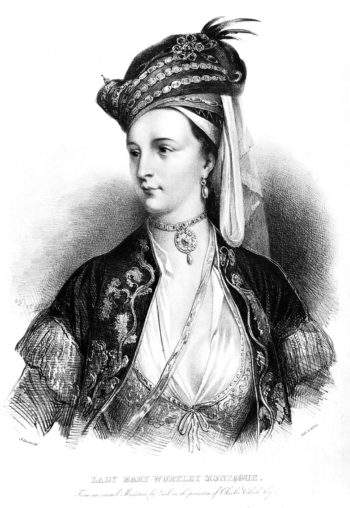She Was A Beautiful And Wealthy Socialite, As Well As A Driving Force Behind Slowing The Spread Of Smallpox

You may have learned that in the 18th century, the severe spread of smallpox was eventually stopped through the process of inoculation.
But did you know that the person who introduced the life-saving practice to England was a woman?
Lady Mary Montagu was a beautiful, wealthy socialite, writer, and wife of a politician who lived in London. She was independent and smart and wrote satirical poems that were sometimes so hilarious yet scandalous that they had to be distributed anonymously.
In 1705, when she was only 16-years-old, her family was affected by the terrifying smallpox epidemic.
Unfortunately, she was infected and suffered tremendously. The disease was so bad that by the time she miraculously recovered, she was covered in scars and even lost her eyelashes.
Despite all the suffering she endured, Mary continued living her life. A year after she had the disease, her husband was appointed by the King to be an ambassador to Turkey.
Unlike most women who would’ve stayed home with the children, Mary and her 3-year-old son traveled to Turkey with her husband.
During her time in Constantinople (now Istanbul), Mary wrote pages and pages of detailed correspondence, specifically pertaining to the lives of women living there at the time. One specific subject she wrote about in 1717 changed the course of history.
Turkey, too, had been hit with the smallpox epidemic, yet Mary couldn’t help but notice that many of the citizens still had beautiful skin.

Wellcome Collection – Mary Wortley Montagu. Lithograph by Villain after A. Devéria after C. F. Zincke.
That’s when she learned that older women in the community were especially attentive to smallpox and found a way to prevent it.
Mary observed them using the practice of inoculation, when the pus from an infected person’s skin was inserted into the skin of a non-infected person through a small incision, giving that person smallpox to grant them immunity.
Before Mary returned to London in 1718, she insisted that her son be inoculated. He never got the disease.
English medical professionals criticized her for trying to make inoculation a common practice for a multitude of reasons.
To prove to the public and local doctors that inoculation works, she decided to have her second child, a baby girl, inoculated as well.
But this time, she would invite an audience to watch the process and see for themselves that it works.
The public observed each stage of her daughter’s recovery – even the King’s physician witnessed it. Her daughter grew up to be a healthy and prosperous woman.
After seeing how inoculation worked for Mary’s children, people all over her community began demanding that their children be inoculated.
It got to the point where the Princess of Wales asked King George I if the royal children could get the procedure. The King demanded that more testing be done before any royals would be inoculated.
Clinical trials for inoculation began all over England, where it was still proven to work. The King eventually permitted his granddaughters to be inoculated. Afterward, it became a common practice.
When Dr. Edward Jenner invented the official vaccine using cowpox instead of smallpox, Mary’s credit and efforts were somewhat cast aside. Did you ever learn about her in your history classes?
Mary continued to write and travel into her final years and died at 73. Although she doesn’t get nearly as much credit as she deserves these days, we’re so happy to share her story now.
If true crime defines your free time, this is for you: join Chip Chick’s True Crime Tribe
Sign up for Chip Chick’s newsletter and get stories like this delivered to your inbox.
More About:Chicks We Love





